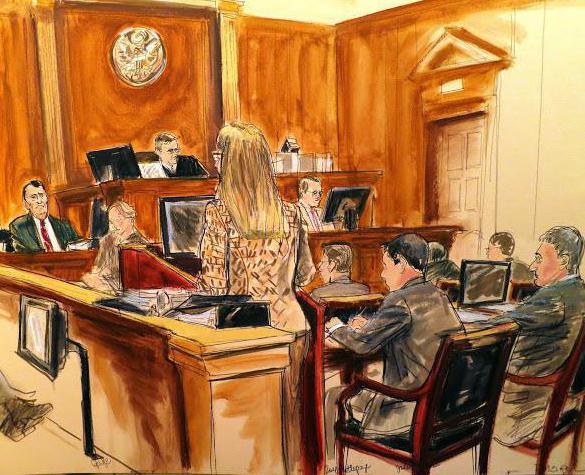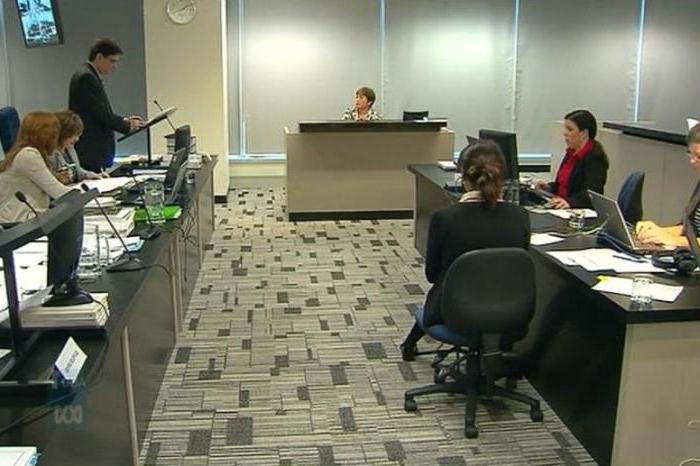A complaint about an investigator’s inaction is a method of influencing a participant in a criminal trial on a person conducting a preliminary investigation. It may be submitted by all relevant parties to the case.
Who is an investigator?
Investigator - an official of the police, investigative committee or the FSB. Its task is to investigate crimes, that is, the formation of evidence for prosecution.
Despite the differences in departmental affiliation, the procedural status of investigators is the same.

By law, an investigator is a party to the process that belongs to the prosecution. Despite this, he obliges him to be objective and collect evidence in favor of the accused. Such a contradiction leads to the fact that citizens remain defenseless against abuses of officials. The lawyer is quite limited in his capabilities.
The only thing that remains is to write a complaint about the inaction of the investigator or his actions that violate the law.
The general list of powers of the investigator
Article 38 of the Code of Criminal Procedure describes the following basic rights and obligations of an investigator:
- to initiate criminal proceedings;
- take it to your production or transfer it to the head of the investigation department;
- select crime versions for further development;
- decide on the conduct of investigative actions and send petitions on their conduct to the prosecutor's office or court, if required by law (for example, a search of a dwelling);
- to give instructions to operational units, district inspectors, bodies of inquiry about conducting operational measures or investigative actions;
- appeal the decision of the prosecutor with the permission of the head of the investigation;
- state their disagreement with the comments of the prosecutor.
The right to appeal the decisions of the prosecutor by the investigator is limited and applies only to:
- cancellation of the decision to initiate proceedings;
- return to the investigator of materials for additional investigation;
- change of qualification (which particular articles of the Criminal Code should be applied);
- change in the scope of the charge (the number of episodes of the crime);
- drawing up a new indictment or eliminating other shortcomings.
The complaint is submitted to a higher prosecutor, up to the General Prosecutor's Office.
The implementation of these and other rights and obligations of the investigator is carefully described in the section of the CPC on the preliminary investigation.
What is meant by inaction?
Illegal inaction of the investigator means refusal or avoidance of work that he is obliged to perform by force of law. Illegal actions also mean his going beyond the scope of authority or their implementation in violation of the procedural law.

Violations are considered significant and entail sanctions by the prosecutor or the head of the investigation department if they lead to infringement of the rights of citizens or affect the effectiveness of the investigation. However, the last points have a close relationship.
Examples of inaction:
- refusal to initiate proceedings;
- refusal to apply measures aimed at securing a civil lawsuit and preserving property that was obtained by criminal means.
- refusal to call a witness or demand evidence that confirms the words of the accused;
- refusal to order an examination;
- unreasonable evasion of an investigative action, the adoption of another procedural decision.
The law gives reason to believe that inaction takes absolutely any form, and the author of the complaint is not limited in how to formulate his claims.
Complaint deadlines
Unless otherwise specified by law, a complaint about the investigator's inaction is filed at any time. You should not linger with her, as time will be lost, and the meaning of the submission is lost. For example, a complaint about a violation of the order of appointment of an examination. Due to the destruction of materials, it will be impossible to correct the mistake made.
The value of the complaint
Complaining about the investigator’s inaction is serious. It consists in the ability to influence the investigation process, as well as to record violations committed by the investigator if there is still no proper response to the complaint. Thus, she will play a role in the future when the case goes to court.

Despite the cancellation of the right to send the case for further investigation, the judge has the right to make comments before considering the merits. They are transferred to the prosecutor's office, and from there to the investigator. This procedure is possible as part of a preliminary meeting. At this stage, the question of the readiness of the case for consideration is decided.
Violations ignored in the first instance may play a role in the appeal, cassation or supervisory stages.
Where to send your complaints?
The law gives the right to choose where to send the complaint, namely:
- the head of the investigation department;
- to the prosecutor;
- judge.
The interested person has a free choice where to complain about the investigator’s inaction, but there is an important nuance. The prosecutor's office will defend its position. If the application is submitted there, then there is a chance that her position will change.
Head of Investigation Department
The complaint about the inaction of the investigator to the head of the investigation department is considered the least effective. He actually controls the investigators. Without his participation, not a single serious decision is made.
Nevertheless, in ordinary cases, sending a complaint to the department head can help.
Prosecutor's office
The prosecutor is obliged to ensure the supervision of the legality of the actions of the investigator. Employees overworked, in reality, monitor only one thing - meeting deadlines. Almost never takes into account how correct the decision in essence is - there is no time to do this.

An example is refusals to initiate proceedings. The prosecutor's office, as a rule, agrees with the investigation. At the same time, if a complaint is filed about the investigator’s inaction in a criminal case, the prosecutor may agree with her.
Which prosecutor’s office should I contact? If the case is subordinate to the district police department or the Investigative Committee, the district prosecutor’s office supervises.
The FSB has jurisdiction over cases that are then referred to a military court, which is why the military prosecutor’s office is responsible for supervision. The same is with the military administration of the UK.
In general, the supervision of the activities of the FSB is provided by military prosecutors, because state security officials are military personnel.
A complaint to the prosecutor’s office regarding the investigator’s inaction is considered a good option, since after passing all the instances of the prosecutor’s bodies the applicant has the right to go to court.
Courts
Complaints are examined in the first instance by the district courts. The application is considered by one of its employees. He calls the initiator of the complaint and his representative, most often they are advocates. The state party is represented by prosecutors.

Those who disagree with the decision of the judge have the right to appeal, cassation and supervisory appeal.
How to file a complaint?
It is submitted either directly to the body authorized to examine it, or to the investigator, who then transfers it to the appropriate structure.
Practice shows that it is better to send materials directly to the head of the investigation, to a court or prosecutor's office. Otherwise, their transmission will also be delayed.Papers must be sent directly to the office or sent by mail.

Persons in custody transmit documents through the administration. Examples of complaints submitted from pre-trial detention centers and places of detention show that not all state authorities violate the rights of citizens.
Making a complaint through electronic services makes sense when it is duplicated in paper form.
Preparation of the complaint text
People who do not have experience writing complaints about the investigator’s inaction in a criminal case should use special samples. If possible, you can study the practice of local courts, not forgetting the specifics of each individual case.
The requirements for filing a complaint are simple and straightforward. You must specify:
- Name and place of residence of the applicant;
- the official to whom the complaint is sent;
- statement of violations that the investigator has committed or is committing;
- requirements or goals of the complainant;
- inventory of copies of attached documents;
- signature and date.
You need to leave a copy with a mark on the acceptance of the document.
The statement of circumstances and arguments should be as complete and informative as possible; ambiguous expressions or ambiguities should not be allowed. The more specific the document, the better. It is important to describe the violations and their consequences, as well as a reference to the rule of law.

From the complaint should be clear the person’s participation in the case, his status and number.
If dissatisfied responses were written earlier, then a reference is made to the answers to them and it is indicated for what reasons they did not satisfy the author of the complaint.
If they are not mentioned, then the prosecutor or assistant judge will consider that the complaint is not in accordance with the law, and therefore will not deal with it.
The prosecutor or judge is required to request additional materials from the case in the process of considering the application.
It is advisable for the author, who has the case materials in hand, to attach them to the complaint. For example, when it comes to documents relevant to the case. Lawyers, providing examples of complaints, often talk about this.
No less important are the requirements of the complaint:
- recognize inaction (indicate what it consists of) unlawful;
- oblige to perform specific actions, set a deadline for this.